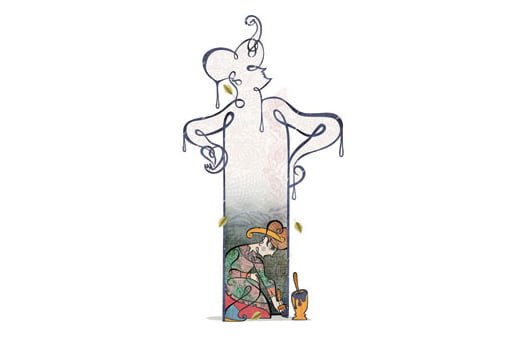Hizmet: a social movement or political manipulation?

Date posted: May 25, 2013
Sadık Çınar*
In the last decade, the Hizmet movement has become a phenomenon in Turkish civil and political life. A shallow look from the outside, however, can lead to confusing and contrasting perceptions about the movement when it is only fed by newspaper articles, columnists and rumors.
| Politicians still think that the only means of political engagement is through established political parties and that any other institution, including all kinds of social movements, should be apolitical. They can engage in anything but politics. They couldn’t and shouldn’t make any demands of politicians. In that event, they should form a new political party or become part of an existing one. The political system couldn’t bear the engagement of outsiders in Turkey’s politics through any means other than official political parties. |
People from different points on the ideological spectrum are using strong labels to describe the movement, and some of them are quite conflicting. In this article I would like to write about the Hizmet movement’s relationship with politics. I will try to find an answer to the question: Are they engaging in politics out of a pure right to civic, social engagement, or are they engaging in politics for political advantage?
Before answering that question, I must explain the perception of “politics” in Turkish public life. When the nation-state of the Turkish Republic was built after the collapse of the Ottoman Empire, political life was dominated by the Kemalist idea. This was one that was exclusive to the elite of society, state-centered and not open to civil initiatives. They saw politics as their way of ruling the public, and this group closed its doors to the “other.” Kemalists effectively used ideological state apparatuses (a term developed by the Marxist theorist Louis Althusser to denote institutions of education, the churches, family, media, trade unions and law which are formally outside state control but which serve to transmit the values of the state) and closed every avenue which might lead to participation in the political arena.
No engagement in politics
The “other” was to engage in everything else but politics. Politics was to be managed by their one-party political system and to serve their triumphant ideology. Everyone was to be satisfied with that. Obviously, it was far below the expectations of the public. People tried to form alternatives to that exclusivist idea, but whenever they gained some ground to fulfill their political interests, it was banned either by coups or by closing down political parties. The Kemalist idea always perceived alternative political or even social engagement as a threat to the Turkish Republic.
A power struggle lasted for almost 90 years. Currently, although the political parties have changed, the Kemalist reflex of political domination is still there. Politicians still think that the only means of political engagement is through established political parties and that any other institution, including all kinds of social movements, should be apolitical. They can engage in anything but politics. They couldn’t and shouldn’t make any demands of politicians. In that event, they should form a new political party or become part of an existing one. The political system couldn’t bear the engagement of outsiders in Turkey’s politics through any means other than official political parties.
At this point, the struggle of the Hizmet movement began to be seen. The Hizmet movement is the most visible civil society organization in Turkey and is pro-European and pro-democracy. The movement is the leading organization in Turkey that supports creating a civilian constitution –- and maybe the only one. The movement supports the rights of minorities in Turkey, freedom of religion for all and the right of Kurds to be educated in their native tongue by Kurdish people, or at least learning it in a proper and effective way. The movement is also the biggest supporter of the current court cases against the deep state that tries to overthrow democratic governments with military coups. But for supporting all these very legitimate rights, the Hizmet movement is always accused of interfering in politics. There is an illusion that the Hizmet movement is too powerful and influential to remain an outsider. As an outsider, the Hizmet movement does not participate in conventional politics like political parties, and by being unconventional in this way they are not accountable to the system or the voters. Political parties claim that this form of unconventional politics is “not fair.”
If we look at some examples of civil society organizations from Europe that engage in politics, then we can have some idea of the Hizmet movement’s position in Turkish politics. Western academics describe social movements and their political engagement as “a specific form of collective mobilization which engages conflict by means of unconventional forms of protest.” It is an unorthodox form of political participation, with protest as the main form of action. Social movements are horizontally organized, relying on informal networks rather than hierarchies. They are engaged in some form of debate and propose alternatives to existing systems.
There are many social movements in Europe using an “unconventional” or “unorthodox” type of politics. One of the main examples is the organization named Liberty in the UK. Liberty is a think tank that fiercely protects civil liberties and promotes human rights through policy analysis and lobbying. It works like a pressure group on politics, and it is a highly respected group in British politics. Liberty Director Shami Chakrabarti was a member of the group with UN Secretary-General Ban Ki-moon carrying the Olympic flag at the opening ceremony of the London 2012 Olympic Games. This alone demonstrates her importance and that of her institution.
Right to choose in hands of the people
When we think about the case of Liberty, during its 88-year history nobody expected them to establish a political party and to be involved in politics that way, and I don’t think anybody complains about them being unaccountable to the political system. They are just campaigning with their full power, just like the Hizmet movement does in Turkey. The right to choose is always in the hands of the people and their elected governments. If governments are complaining about political manipulation, it is simply not fair, because the power is still in the hand of the incumbent government. They can easily appoint, change or even fire high-level civil servants and bureaucrats who do not fit well in their positions or are not suited to implement the government’s ideology. They can make massive changes under current laws. As a concluding comment on this issue, the political system in Turkey is still developing. Currently, it is seen as a kingdom for political parties only, and they don’t want to share this or delegate some of this power back to civil society.
*Sadık Çınar is the director of the Birmingham branch of the Dialogue Society in the UK.
Source: Today’s Zaman May 26, 2013
Tags: Hizmet and politics |
























